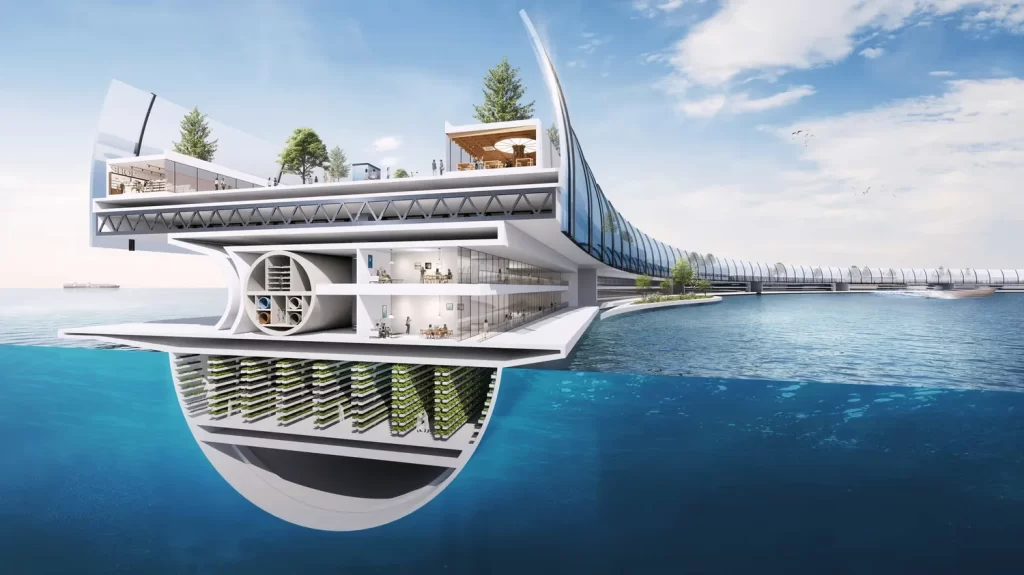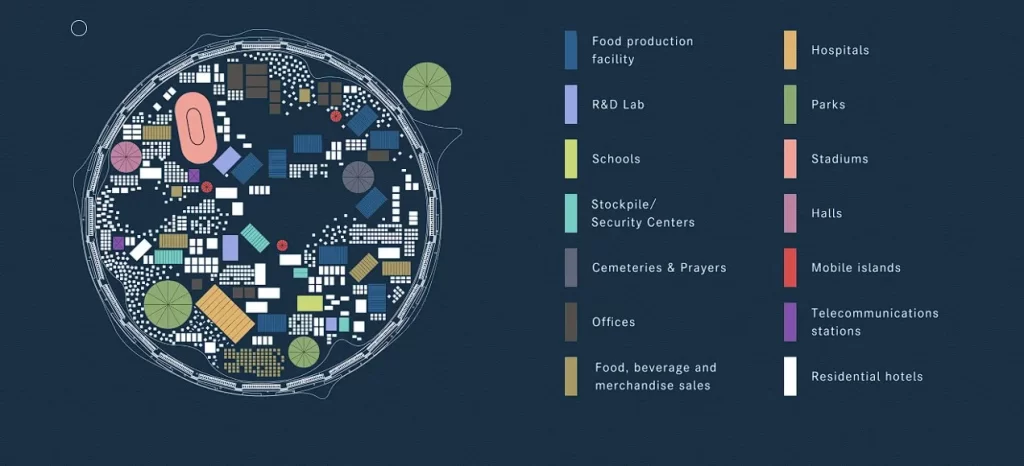Japan to build self-sufficient floating city of 40,000 people

Japan is working on an extremely ambitious floating city that will be self-sufficient and home to 40,000 people. The Japanese company N-Ark calls this floating city Dogen City.
Japan’s N-Ark company has unveiled plans for an incredibly ambitious floating city that will be home to tourism, medical facilities and even space rockets. Dubbed the Dogen City, it will be designed to withstand climate change-induced sea rise and provide energy, food and water for up to 40,000 people.
Japan’s floating city project

According to the announcement, Dogen City will be 4 km in circumference and will have the capacity to accommodate approximately 10,000 full-time residents. The city will also have the capacity to handle 30,000 tourist visits. According to the company, the circular form of the city will be designed to withstand severe weather conditions and even a tsunami.
Dogen City will have three main sections. These are the annular public residential area, a submarine data center that will be naturally cooled by the sea and will contain the city government and medical research facilities, and the architecture floating within the artificial bay formed by the annular structure. There will also be lots of greenery, food production facilities, a school, sports fields, hospitals, parks, stadiums, hotels and offices. N-Ark envisions Dogen City to include some sort of launch and landing site for rocket transport.
Scheduled to open in 2030

According to N-Ark, the city will consume around 2 million liters of water per year, which seems rather modest. 3,288 tons of garbage disposal per year, 7,000 tons of food and 22,265,000 kW of energy production will be other items. Meeting all these needs will certainly be a huge challenge, and the details of how the floating city will do this are unclear at this stage. In addition, N-Ark aims to open the floating city for use by 2030. Under normal circumstances, we could say that this is a “dream project” with a low chance of being realized, but considering that Saudi Arabia has started the construction of the 170-kilometer The Line city, the project seems quite possible.






